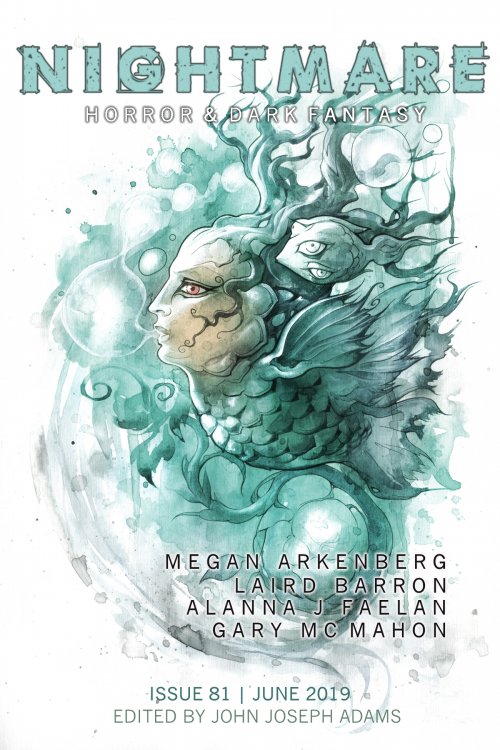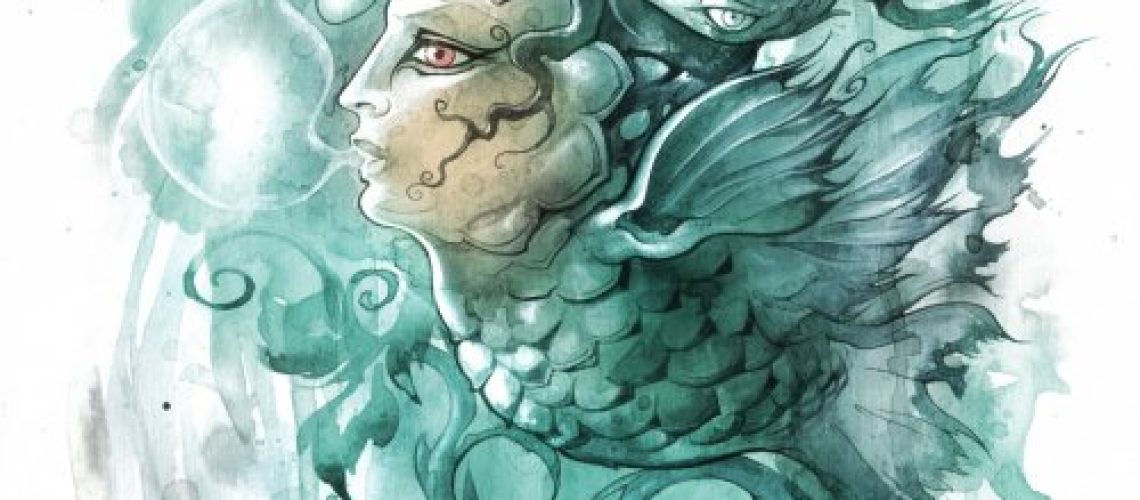Sometimes the stories that I review in a given month are all united by a particular theme. That is not the case this month. This time around, the only strand uniting these three stories is that each story features something I like.
If (like me) you like smart stories about dis/ability and social structures, you should check out “Spectrum of Acceptance” by Nyla Bright, which appears in Escape Pod. If (like me) you like fables about Death or meditations on storytelling itself, you should check out “The Night Princes” by Megan Arkenberg, which appears in Nightmare Magazine. And if (like me) you like stories about happy queer couples or unconventional families, you should check out “A House With a Home” by Jon Mayo, which appears in Anathema Magazine.
Side note: Anathema is currently running an IndieGogo campaign to raise funds for their fourth year. Anathema is one of my favorite SF publications (right up there with Uncanny and Lightspeed), so please check out their awesome stories and seriously considering donating/subscribing if you can.
“Spectrum of Acceptance” by Nyla Bright
Ada lives on the planet of Acceptance, a place that centers neuroatypical people and where the social rules are built to accommodate everyone’s needs and abilities. Ada has just met Leon, a emissary from Earth who has come to investigate Acceptance. Leon has heard that it’s actually a place where people with disabilities are exploited.
Bright’s prose is simple and engaging, but thematically, this is a complicated story. More specifically, it’s an ambiguous utopia, which is to say: whether Acceptance is a utopia or dystopia depends on your worldview and your values. In imagining utopian worlds, we make all sorts of trade offs. For example, I’d be happy to jettison luxuries for the sake of equality, but perhaps you’d be willing to tolerate some inequality for the sake of occasional luxuries. Some people prize privacy while others care more about efficiency. One person’s utopia can often be another person’s dystopia, and that’s definitely the case with this story.
At first, Acceptance appeared to me to be a dystopia. Throughout the story, Ada (the first person narrator) lusts after human touch and eye contact, which are scarce on Acceptance. She also constantly corrects herself for thinking too metaphorically. For example:
On our first meeting, Leon took my hand in both of his as if he had known me my whole life, like he knew I was NT — neurotypical — and I liked touching. I could read his mind, and he was reading mine right back. That’s not right. No one has ever proved mind-reading. Mind-reading isn’t real.
To me, these are classic marks of dystopian worlds. However, as the story progressed, Acceptance appeared to me to be more and more of a utopia. On Acceptance, metaphorical thinking is only frowned upon because not everyone understands it. On Acceptance, the social rules are constantly changing based on the needs and abilities of everyone in the room. Whether touch, eye contact, or metaphorical thinking are taboo merely depends on who else is around. So ultimately, I think Acceptance can definitely be read as a utopia, albeit one that’s not for everyone. (I mean, is it even possible to define a utopia that everyone would agree to? I’m inclined to say no.)
I think the best question to ask when it comes to utopias isn’t “Is this utopia?” but rather “Who is this a utopia for?” Because “Spectrum of Acceptance” isn’t just a story that includes neuroatypical people. Acceptance is a world that centers people with disabilities. Immigrants from Earth are constantly coming to Acceptance. The ones who choose to return to Earth are, by and large, neurotypical people who want to be centered in society. It makes me recall the saying: when you’ve been privileged all your life, equality feels like oppression.
“Spectrum of Acceptance” is one of my favorite stories that I’ve read this year. It’s intelligent and challenging, and I highly recommend you check it out.
If you want to read more SFF stories that deal with dis/ability, check out “Assistance” by Kathryn DeFazio and “The House on the Moon” by William Alexander, both of which I have previously reviewed for Skiffy and Fanty. Additionally, I’d be remiss not to mention that Uncanny Magazine just released their latest special issue: Disabled People Destroy Fantasy!
“A House With a Home” by Jon Mayo
Lester and Arturo are a happily married gay couple. Lester is the designated “house husband.” When there’s time, he works on writing the next great American novel, and he also likes playing video games. Arturo, meanwhile, has a new job: director of nursing. After Lester and his husband Arturo move into their new house, Lester starts to worry that the house is haunted. This story is rather short (4,050 words), and I can’t say too much more about it without spoiling the fun of it, so I have to cut my description here.
However, here is what I can say: this story is cozy. Despite the specter of the ghost, it’s not a scary or particularly heavy story. It’s a story about a happily married gay couple, and while there is some pain and loss, it’s ultimately a story about the joy of family and, in particular, the joys of unconventional families. (A favorite theme of mine!) This story is cute and adorable and it warms my heart.
If you love cozies or stories about happy queer families, you gotta check this one out.
 “The Night Princes” by Megan Arkenberg
“The Night Princes” by Megan Arkenberg
Batul has been surrounded and hounded by death. There was that man — her father? — that her mother might have killed. There was her ex-lover, who threatened to kill himself, who hit her and almost killed her. There are the soldiers in town, the soldiers executing violence in the music shop downstairs. Now, Batul and three young boys are holed up in her apartment, wondering not so much if death will come for them but rather how it will do the job. Murder? Starvation? Hopefully neither, but is that realistic? All that Batul can do in the meantime is tell a story: a fable about Death and her three children who try to escape her.
Earlier this year, I reviewed another fable about death: “Ti-Jean’s Last Adventure, as Told to Raccoon” by KT Bryski. Both stories are framed and layered stories, but whereas the first layer in “Ti-Jean’s Last Adventure” was fun and adventurous, every layer in “The Night Princes” is heavy, dark, and busy exploring how death and violence are pervasive and inescapable. But don’t be scared off. This story is also gorgeous, imaginative, and insightful.
Why do I love fables about Death, and this one in particular? Death is a fundamental part of life, but we sometimes don’t pay it enough attention or consider it seriously enough in our stories. Stories are a key way for humans to make meaning and process experiences, but stories about death are just … so heavy. So Sad. So un-fun. Fables about Death, however, offers an extra layer of metaphorical abstraction that allows me to enjoy the story rather than feel overwhelmed by it, and that abstraction also allows me to think more deeply about how to understand and make sense of death in general (as opposed to overly focusing on the death of one individual).
And that’s exactly what this story is about: not just death, but also how we humans try to make sense of it. Because precisely speaking, “The Night Princes” isn’t a fable about death. Rather, it’s a story in which a woman tries to tell a fable about Death and tries to make some sense of death. As Arkenberg writes, Batul “told stories to convince herself that Death was fair and gentle, but all of her stories got away from her. She could no longer believe them unless they ended badly.” [Emphasis in original.] I love fables about Death, but what makes this story really remarkable is how Arkenberg shows Batul struggling against the weight of violence, fear, and trauma, trying to make sense of death, wanting to come to peace with it, but not quite able to. In that way, I feel this story is deeply relatable and painfully and poignantly human.
For these short fiction reviews, I always try to shout out stories by new writers or writers with marginalized identities. There’s basically more short genre fiction published in a given month than anyone can really read, so I don’t purport to have read it all. I read what I can in a given month, and then squee about my favorite stories and reflect on the most interesting ones. If you loved any stories recently that I didn’t mention, please shout them out in the comments below!







